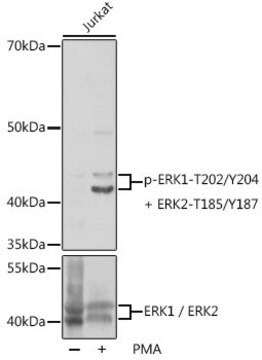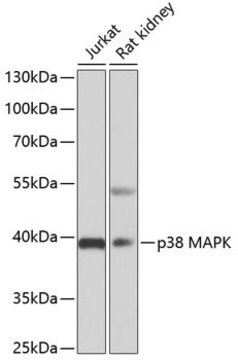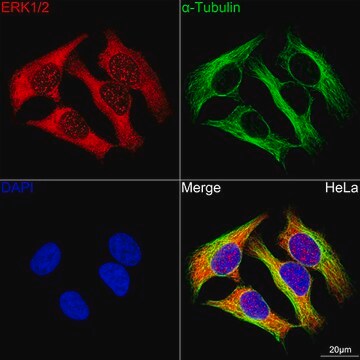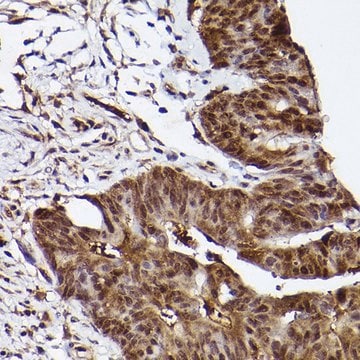SAB1305560
Anti-MAP Kinase- ERK1/ERK2 Antibody
mouse monoclonal, 784CT7.6.3
Sinónimos:
ERK1, MAPK3, Mitogen-activated protein kinase 3, PRKM3
About This Item
Productos recomendados
Nombre del producto
MONOCLONAL ANTI-ERK1/2 antibody produced in mouse, clone 784CT7.6.3, IgG fraction of antiserum, buffered aqueous solution
origen biológico
mouse
Nivel de calidad
forma del anticuerpo
IgG fraction of antiserum
tipo de anticuerpo
primary antibodies
clon
784CT7.6.3, monoclonal
Formulario
buffered aqueous solution
mol peso
43136 Da
reactividad de especies
mouse, human
técnicas
western blot: 1:1000
isotipo
IgG2a
Nº de acceso UniProt
Condiciones de envío
wet ice
temp. de almacenamiento
−20°C
modificación del objetivo postraduccional
unmodified
Información sobre el gen
human ... MAPK3(5595)
Forma física
Cláusula de descargo de responsabilidad
¿No encuentra el producto adecuado?
Pruebe nuestro Herramienta de selección de productos.
Código de clase de almacenamiento
10 - Combustible liquids
Punto de inflamabilidad (°F)
Not applicable
Punto de inflamabilidad (°C)
Not applicable
Elija entre una de las versiones más recientes:
Certificados de análisis (COA)
¿No ve la versión correcta?
Si necesita una versión concreta, puede buscar un certificado específico por el número de lote.
¿Ya tiene este producto?
Encuentre la documentación para los productos que ha comprado recientemente en la Biblioteca de documentos.
Los clientes también vieron
Nuestro equipo de científicos tiene experiencia en todas las áreas de investigación: Ciencias de la vida, Ciencia de los materiales, Síntesis química, Cromatografía, Analítica y muchas otras.
Póngase en contacto con el Servicio técnico








